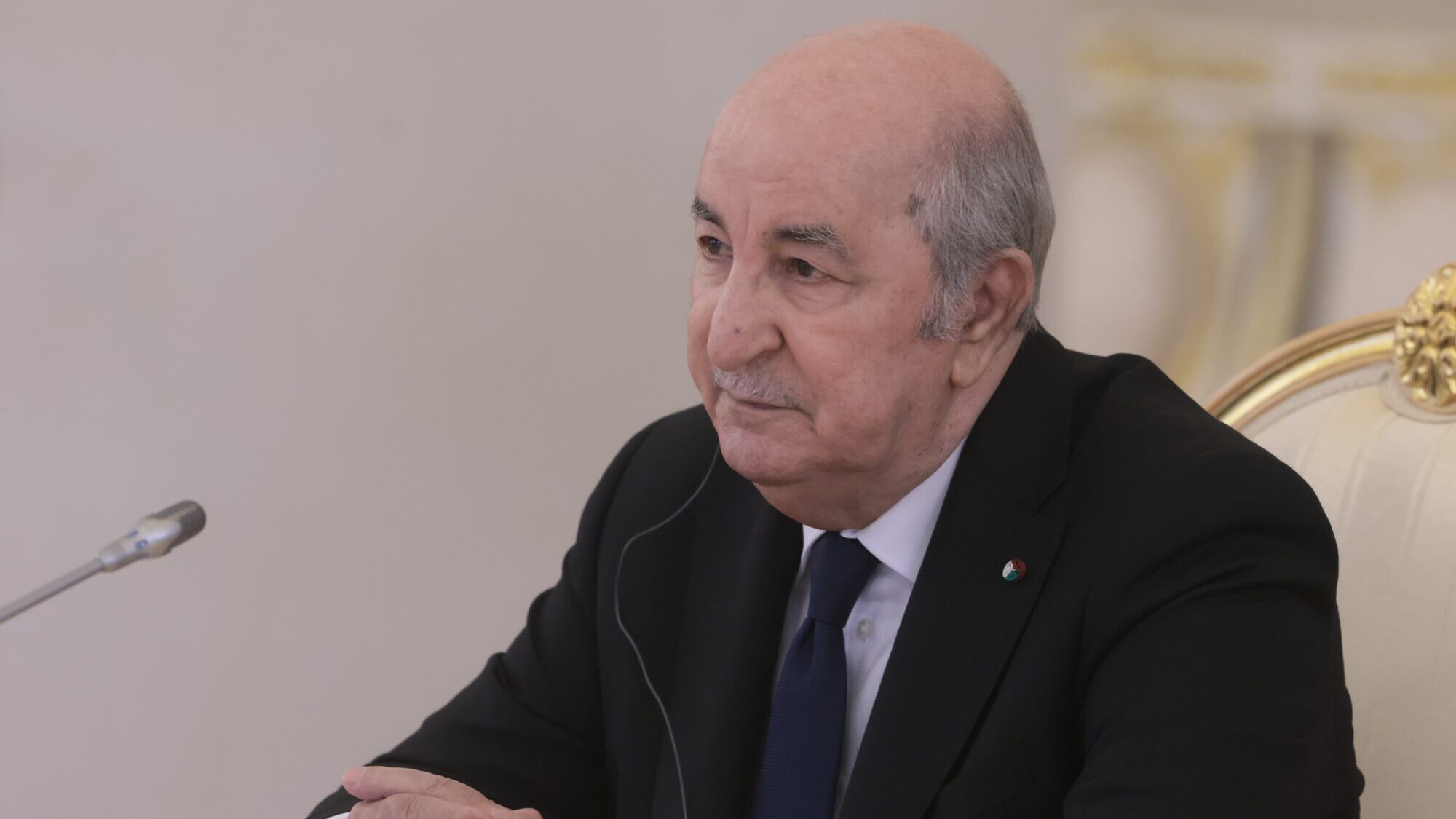
Algeria’s President Abdelmadjid Tebboune.
Photo: Mikhail METZEL / SPUTNIK / AFP
After agreeing last week to strengthen cooperation with China in security, national defense, and other areas, Algeria, North Africa’s second-largest economy, has submitted an application to join the BRICS group and a request to become a shareholder member of the BRICS New Development Bank (NDB) with $1.5 billion.
The move, which comes roughly a month ahead of the 15th annual BRICS summit set to take place in Johannesburg, South Africa, highlights the North African country’s geopolitical and economic reorientation toward Russia and China as it appears to wish, at least in part, to decouple itself from the collective West.
During a state visit to Moscow last month, Algerian President Abdelmadjid Tebboune and President Putin agreed to strengthen the “strategic partnership” between their two countries.
“We officially applied to join the BRICS group, we sent a letter asking to be a shareholder member in the bank. Algeria’s first contribution to the bank will be $1.5 billion,” Algerian President Abdelmadjid Tebboune told Ennahar TV, adding that he hoped Algeria’s membership in the group would open up new economic horizons for the country.
By joining the emerging economic alliance, the North African country, which is rich in oil and gas resources, seeks to diversify its economy and strengthen its economic and political partnerships with countries outside the collective West.
Tebboune’s announcement comes just days after Anil Sooklal, South Africa’s top diplomat responsible for dealings with Asia and the BRICS bloc, told reporters that twenty-two countries have “formally” asked to join the economic alliance, while “an equal number of countries have informally expressed interest in becoming BRICS members … [including] all the major global south countries.”
Among the countries who have expressed interest in joining the bloc, whose current membership accounts for over a quarter of global GDP and 40% of the world’s population, are Argentina, Iran, Saudi Arabia, the United Arab Emirates, Egypt, Turkey, Cuba, Democratic Republic of Congo, Kazakhstan, and others.
Sooklal argued that an increasing number of countries applying to the BRICS alliance is indicative of the growing confidence in the group’s work. He added that BRICS—an acronym for Brazil, Russia, India, China, and South Africa—is not a “political force” alone that seeks to shift to “fault lines in global politics” but also one that aims to act as a vector for change “in the economic space at the global level.”
“The current global structure is still unequal and continues to marginalize developing countries … and is still dominated by a few. We do not want a similar world. We want a world where our voices are heard,” Sooklal told Agence France-Presse (AFP).
